Algeria, a captivating North African gem, blends ancient history with modern charm. Its diverse landscapes span vast deserts, rugged mountains, and lively cities rich in heritage. Visitors can explore Roman ruins, vibrant souks, and stunning coastlines, immersing themselves in a fusion of Mediterranean and Saharan cultures. With its unique contrasts and deep-rooted traditions, Algeria offers an unforgettable journey of discovery, inviting curious travellers to experience its extraordinary beauty.
Quick Details
Location: North Africa, bordering the Mediterranean Sea and the Sahara Desert
Notable Attractions: Roman ruins, ancient kasbahs, vast deserts
Wildlife: Unique species including Barbary macaques, desert reptiles, and migratory birds
Cultural Significance: A blend of Berber, Arab, Ottoman, and French influences
Activities: Sightseeing, hiking, desert tours, cultural exploration
Location
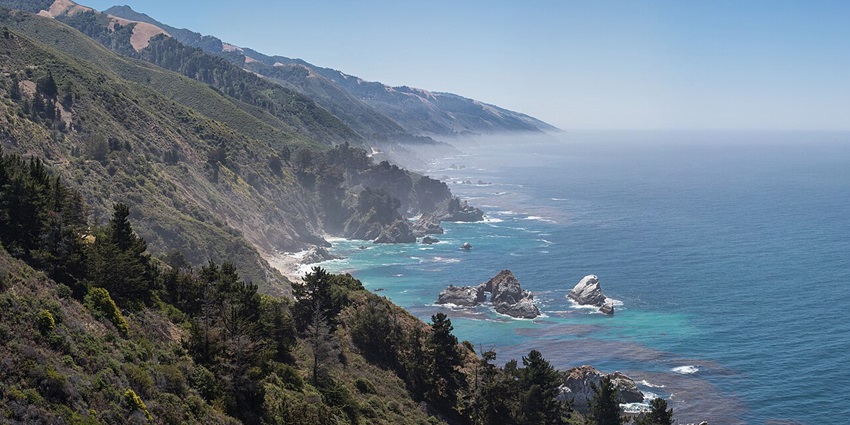
Photo: Diliff / Wikimedia Commons / Image For Representation Only
Algeria is positioned in northwestern Africa between latitudes 19°N and 37°N and longitudes 8°W and 12°E. Its northern border, with a 998 km-long coastline, touches the Mediterranean Sea and neighbours Tunisia and Morocco. To the east lies Libya, while the vast Sahara forms the southern region and borders Niger, Mali, Mauritania, and Western Sahara. The northern landscape features the Tell Atlas and Saharan Atlas ranges, fertile plains, and ancient Roman ruins, all of which offer diverse exploration opportunities and rich historical insights.
How To Reach
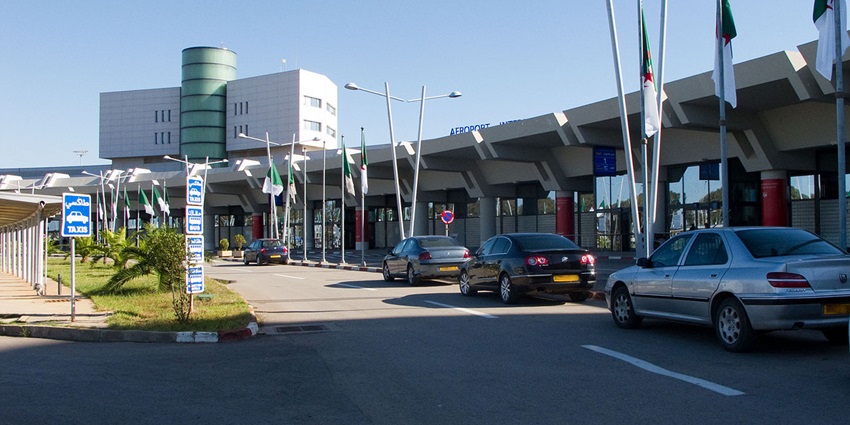
Photo: Poudou99 / Wikimedia Commons
Discover easy routes to Algeria through multiple transport options, offering convenience and comfort for every traveller visiting this remarkable destination:
By Air: Houari Boumediene / Algiers and Oran Es Sénia airports handle frequent flights from Europe and the Middle East.
By Rail: The SNTF network connects Algiers, Oran, Constantine, and Annaba with timely train services.
By Road: Highways A1 and N1 link major cities, supported by regular bus routes and car rentals.
Things To Do in Algeria
Immerse yourself in Algeria’s captivating experiences, where every moment reveals a blend of historical treasures and natural splendour beyond imagination:
1. Desert Trekking Adventure
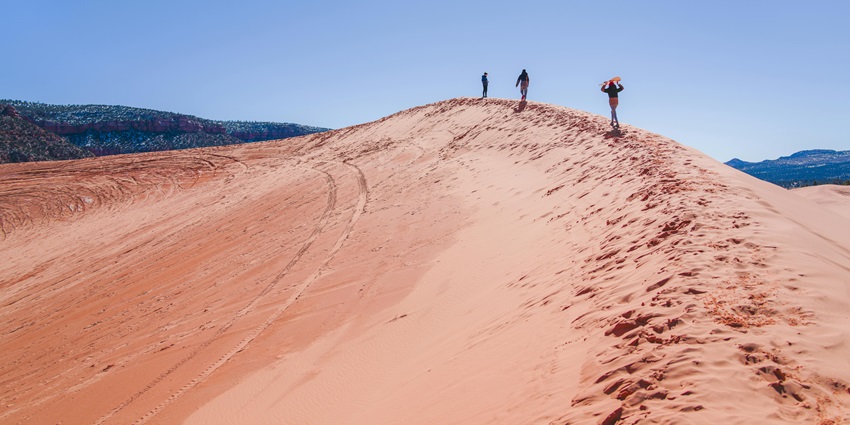
Photo: James Mirakian / Pexels / Image For Representation Only
Algeria’s vast Sahara challenges adventurers with exhilarating trekking journeys. Explore endless sand dunes, ancient rock formations, and secluded oasis towns on carefully planned routes. This desert trek exposes travellers to the stark beauty and historical mysteries embedded in the shifting sands. Local guides offer insights into prehistoric rock art and traditional Berber communities, enriching the journey. Each step provides an opportunity to connect with nature’s extremes and discover secrets of time-honoured landscapes in Algeria indeed.
Timings: 6 AM – 6 PM
Best Time To Visit: November – March
2. Alpine Skiing In Africa’s North
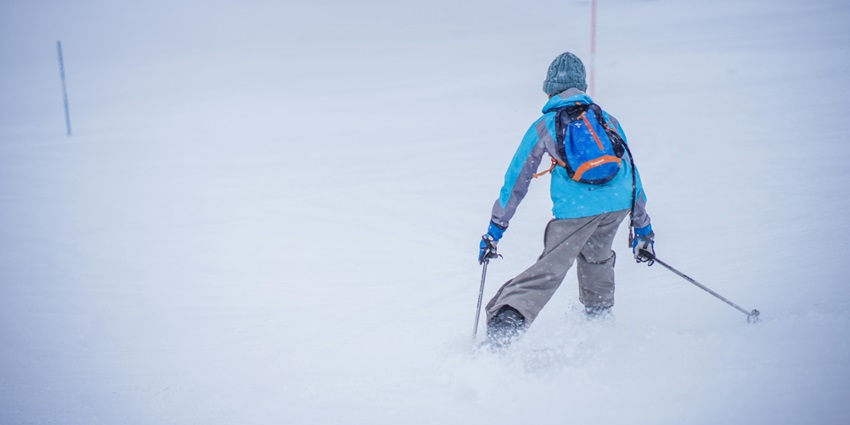
Photo: Imad Clicks / Pexels / Image For Representation Only
Algeria surprises with alpine skiing in the Atlas Mountains. Tijda resort offers a rare winter sports experience in North Africa, blending snowy slopes with Mediterranean views. Facilities cater to beginners and seasoned skiers, set against scenic backdrops. Travellers enjoy skiing in a calm environment distinct from busy European resorts. This unexpected gem in Algeria invites exploration of snow-covered landscapes and crisp mountain air, offering a remarkable combination of sport and natural allure for true enthusiasts.
Timings: 8 AM – 4 PM
Best Time To Visit: January – March
3. Hike The Majestic Kabylia
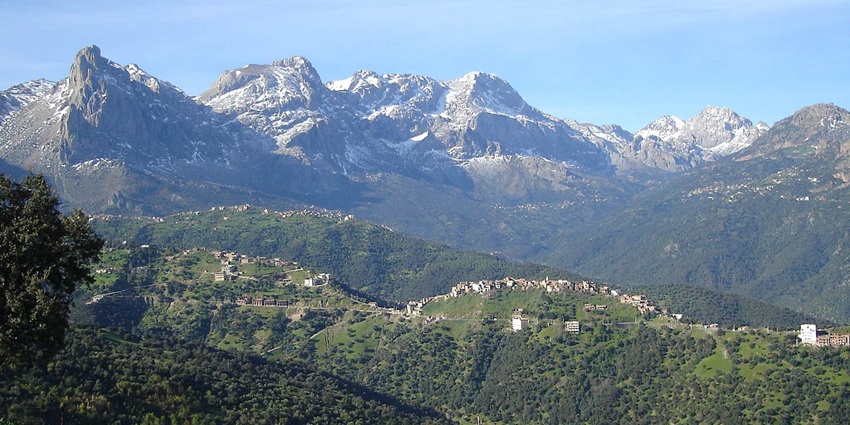
Photo: IRRIGATIONDZ / Wikimedia Commons
Algeria’s Kabylia region features impressive mountain trails merging rugged peaks and coastal influences. Hikers traverse paths winding through ancient villages, steep escarpments, and green valleys. Local communities preserve longstanding traditions that add cultural context to each trek. The routes offer gentle walks and challenging climbs, providing opportunities to observe diverse flora and geological wonders. Kabylia trails in Algeria create an engaging outdoor adventure that unites physical challenge and cultural discovery, ensuring memorable journeys for all.
Timings: 5 AM – 5 PM
Best Time To Visit: April – June; September – October
Places To Visit In Algeria
Explore enchanting neighbouring regions offering historical landmarks, scenic landscapes, and authentic cultural experiences near Algeria for unforgettable travel memories indeed:
1. Timgad
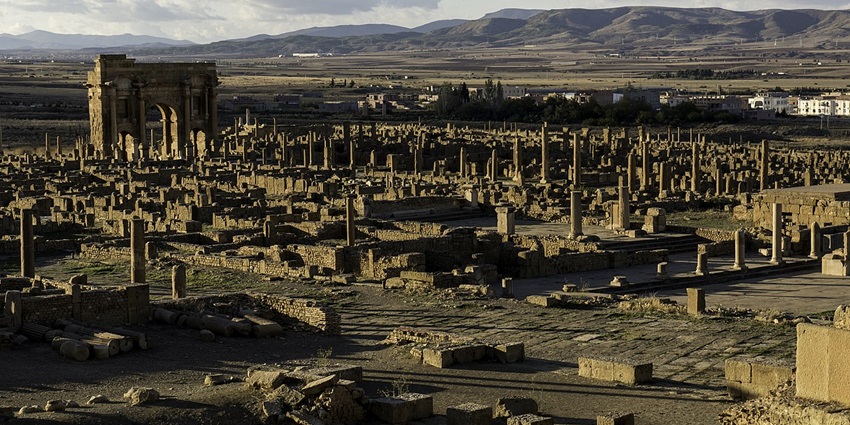
Photo: Dan Sloan / Wikimedia Commons
Located in Algeria, Timgad is a UNESCO-listed archaeological wonder built by Emperor Trajan in 100 CE. This impressive Roman city spans 50 hectares, showcasing a grid layout of forums, temples, markets, baths, theatres, and villas. Its urban planning, including a rare public library, exemplifies ancient ingenuity. Visitors can admire the inscription celebrating life and explore the on-site museum featuring preserved floor mosaics that document daily Roman life.
Timings: 8 AM – 6 PM
Best Time To Visit: September – November
2. Tassili N’Ajjer
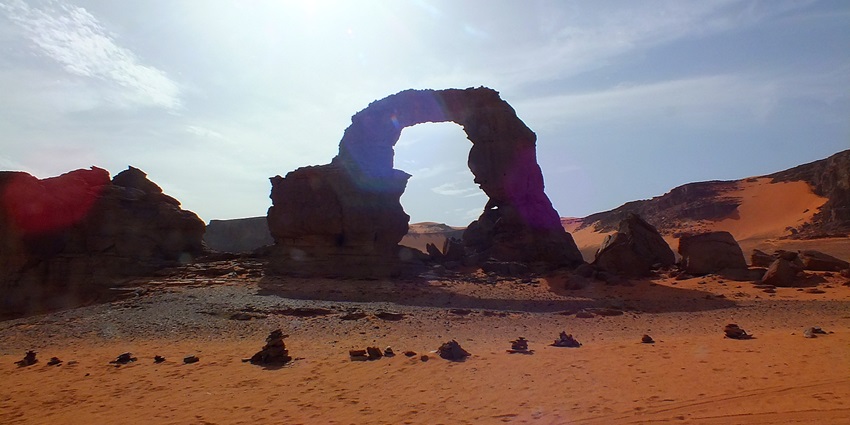
Photo: Akli salah / Wikimedia Commons
Tassili n’Ajjer in Algeria is a UNESCO World Heritage site renowned for prehistoric art. This national park in the southwest presents a rocky plateau adorned with thousands of petroglyphs and paintings dating back 12,000 years. The artwork documents environmental shifts as savanna transformed into desert. Visitors can also admire geological formations sculpted by wind into rock forests. The site endures extreme temperatures, with summer peaks nearing 51°C, providing an intense yet educational experience in Algeria.
Timings: 7 AM – 5 PM
Best Time To Visit: October – April
3. Constantine
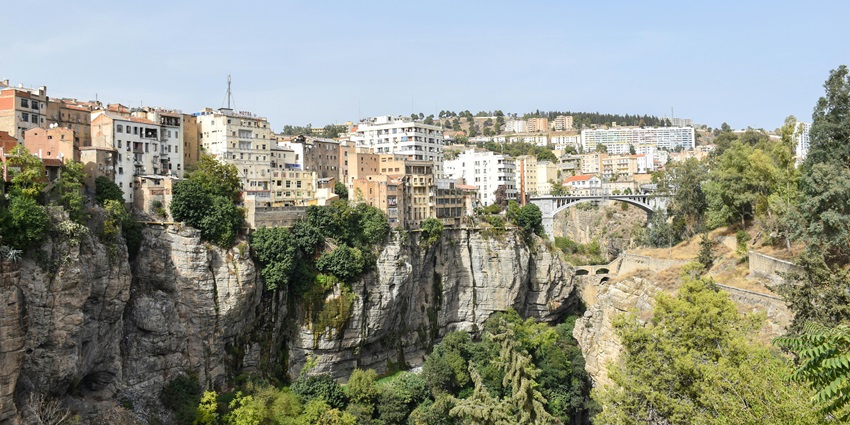
Photo: NADAS Photography / Pexels
Constantine in Algeria stands atop a rocky prominence with deep ravines measuring 200 metres. Established in the 4th century BCE, the city is famed for its series of bridges spanning the Rhumel River gorge. These impressive structures connect the divided urban landscape and offer views of the surrounding terrain. The city’s topography contributed to its historical defence and enduring legacy.
Timings: 9 AM – 6 PM
Best Time To Visit: March – May
4. Notre Dame D’Afrique
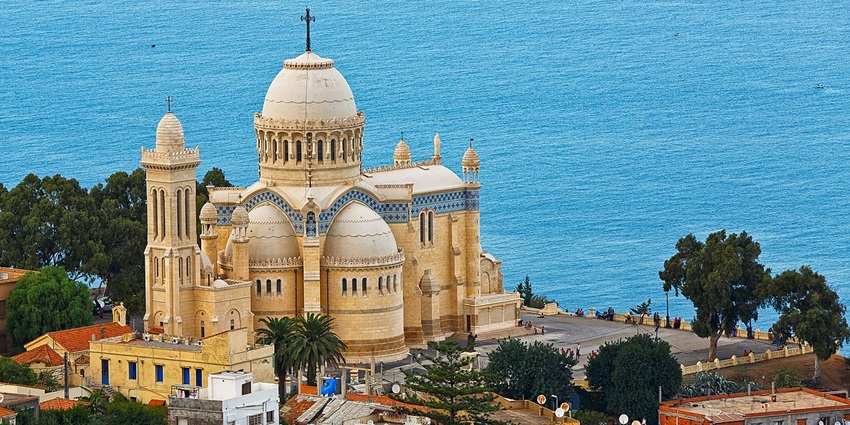
Photo: Chettouh Nabil / Wikimedia Commons
Notre Dame d’Afrique in Algeria is a Catholic basilica perched on a cliff overlooking the Bay of Algiers. Renowned for its Byzantine architecture, the basilica features interior mosaics and stained-glass windows that reflect a blend of European and North African influences. Recently restored, this spiritual landmark promotes interfaith harmony through its inscription and design. The serene site offers views of the bay and stands as a symbol of religious tolerance and historical importance in Algeria.
Timings: 9 AM – 5 PM
Best Time To Visit: April – June
Where To Stay
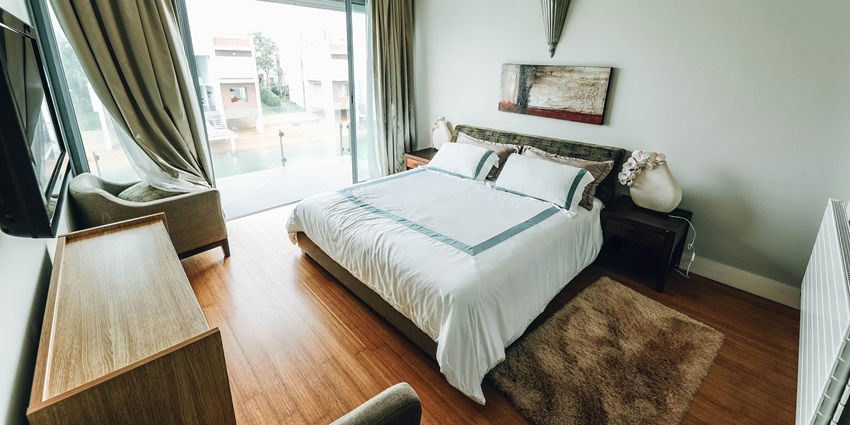
Photo: Zak Chapman / Pexels / Image For Representation Only
Algeria offers diverse lodging options blending luxury and cultural authenticity. The Sofitel Algiers Hamma Garden stands out with its French-Mediterranean design, dual pools, and Moorish-Algerian fusion restaurants near the Botanical Garden. El Aurassi Hotel provides panoramic Bay of Algiers views with modern conference facilities ideal for business travellers. For airport convenience, Mercure Alger Aeroport delivers contemporary comfort and 24/7 shuttle services. History enthusiasts should experience Hotel El Djazair, a colonial-era landmark housing ornate salons and Algeria’s first elevator since 1887.
Where To Eat
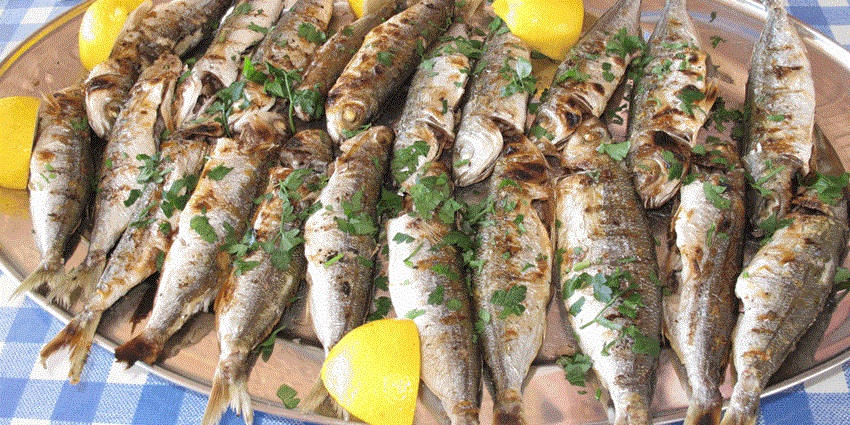
Photo: Peter Grabowski / Wikimedia Commons / Image For Representation Only
Algeria’s culinary scene thrives at Le QG in Algiers, famous for premium steaks and seafood in an elegant setting near government offices. Coastal cravings find satisfaction at Le Dauphin – Chez Sid Ali in Tipasa, serving ocean-fresh lobsters and grilled sardines since 1972. La Grotte des Saveurs offers unique cave dining near the Martyrs’ Memorial, specialising in aromatic tajines under vaulted stone ceilings. For authentic local flavours, Le Maison du Couscous in Algiers masterfully prepares Algeria’s national dish using ancestral recipes passed through generations.
Best Time To Visit
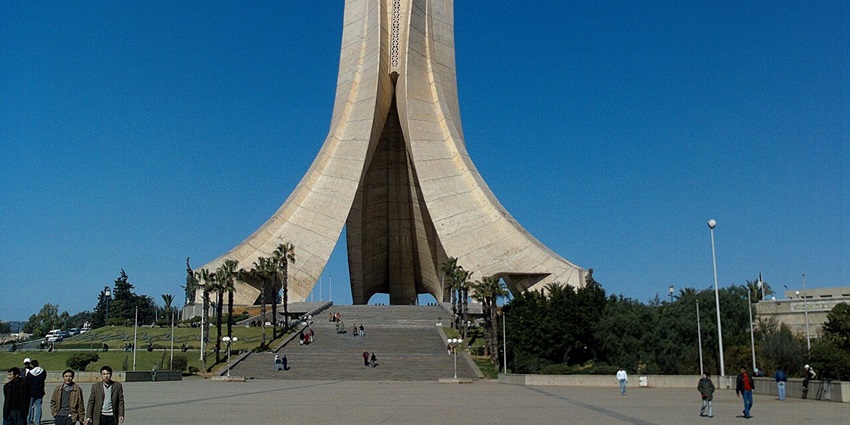
Photo: Mehnimalik / Wikimedia Commons
Algeria is best explored in mild seasons when temperatures range from 18°C – 28°C and skies stay clear. In spring, coastal areas average 20°C while desert mornings drop to 15°C; autumn offers similar conditions with cooler evenings. These seasons provide perfect settings for sightseeing, outdoor adventures and cultural events. Travellers can enjoy desert treks and coastal strolls without extreme heat. A visit during these periods guarantees comfortable weather and reduced crowds.
Tips For Travellers

Photo: Precondo / Pixabay / Image For Representation Only
- Carry Algerian dinars and a mix of cash and cards, as rural areas may not accept cards.
- Dress modestly and follow local customs, particularly during religious occasions and in conservative regions.
- Regularly check local news and government advisories, as security conditions can vary.
- Learn simple phrases in Arabic or French to enhance communication with locals.
- Book guided Sahara tours and inform someone of your itinerary for safety in remote areas.
Algeria offers a rich travel experience filled with history, adventure, and culture. Each corner unveils unique stories and hidden treasures. Explore ancient wonders alongside modern comforts. With TripXL’s exclusive packages, discover Algeria’s captivating allure and create lasting memories. Embark on your next adventure today, book now for an unforgettable journey through this remarkable destination.
Cover Photo: Mouh2jijel / Wikimedia Commons


 WhatsApp
WhatsApp
 Twitter
Twitter









